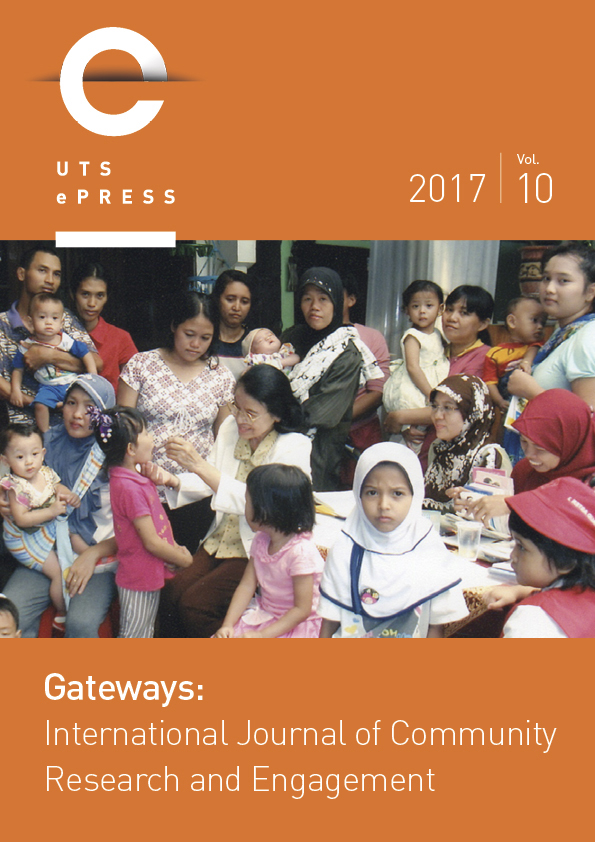Puentes UC: A bridge between university and society
Main Article Content
Abstract
Universities have contributed to society in different ways. Public contributions constitute not only an opportunity to create public value in society, but also to strengthen the comprehensive education of students. The university's public contribution involves the creation of opportunities to link the available technical capacity with those real needs that can be adressed by the university.
Puentes (meaning 'bridge') UC is a program at the Catholic University of Chile, created in 2002. It has established a succesful model to link the university with local government, allowing students to develop academic projects that address pressing public challenges, as well as develop useful products for local government management.
The Puentes UC model of professional facilitation assists local governments to filter their demands, identifying those that present an appropriate opportunity for student involvement. Subsequently, Puentes UC invites students to develop projects which address these demands as part of their courses, internships or theses, and supports them during the execution of their projects. The program's management model works to ensure that local government receive useful technical proposals, and students benefit from a satisfying educational experience.
To date, 2,747 projects have been carried out in 23 municipalities, with the participation of 17,504 students and more than 300 academics.
The Puentes UC model, originally conceived of as a means to work with local governments near the university's campus, has been extended to rural municipalities in other regions of the country, and to new public institutions such as the Gendarmería (Chile's penitentiary service). The potential of this linking model has thus been demonstrated, and can be applied in new realms of cooperation between the university and society.
This article describes in detail the Puentes UC model, and its historical evolution. It then discusses outcomes and achievements, both for university and municipality, and provides some examples of completed projects. The final section analyses the most important learnings and challenges for the program.
Article Details

This work is licensed under a Creative Commons Attribution 4.0 International License.
Authors who submit articles to this journal from 31st March 2014 for publication, agree to the following terms:
a) Authors retain copyright and grant the journal right of first publication with the work simultaneously licensed under a Creative Commons Attribution License that allows others to share and adapt the work with an acknowledgement of the work's authorship and initial publication in this journal.
b) Authors are able to enter into separate, additional contractual arrangements for the non-exclusive distribution of the journal's published version of the work (e.g., post it to an institutional repository or publish it in a book), with an acknowledgement of its initial publication in this journal.
c) Authors are permitted and encouraged to post their work online (e.g., in institutional repositories or on their website) prior to and during the submission process, as it can lead to productive exchanges, as well as earlier and greater citation of published work (See The Open Access Citation Advantage Service). Where authors include such a work in an institutional repository or on their website (ie. a copy of a work which has been published in a UTS ePRESS journal, or a pre-print or post-print version of that work), we request that they include a statement that acknowledges the UTS ePRESS publication including the name of the journal, the volume number and a web-link to the journal item.
d) Authors should be aware that the Creative Commons Attribution (CC-BY) License permits readers to share (copy and redistribute the work in any medium or format) and adapt (remix, transform, and build upon the work) for any purpose, even commercially, provided they also give appropriate credit to the work, provide a link to the license, and indicate if changes were made. They may do these things in any reasonable manner, but not in any way that suggests you or your publisher endorses their use.
For Volume 6 (2013) and before, the following copyright applied:
Articles published by UTSePress are protected by copyright which is retained by the authors who assert their moral rights. Authors control translation and reproduction rights to their works published by UTSePress. UTSePress publications are copyright and all rights are reserved worldwide. Downloads of specific portions of them are permitted for personal use only, not for commercial use or resale. Permissions to reprint or use any materials should be directed to UTSePress.
